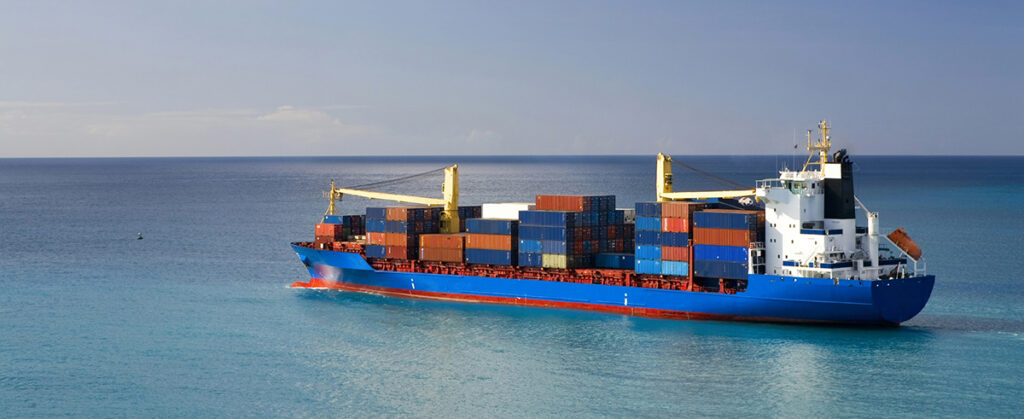… ratification for protecting rights and development initiatives
By Deniece M. Aiken
Seaports are essential for the economic development of most Caribbean states. And the rights and protection provided by international maritime laws are imperatives for protecting the development initiatives of states and territories of the Caribbean region. But these laws offer little protection and support to a state that does not incorporate them into its body of legislation.
Regulating competing interests
In recent times, the Arctic region gained much prominence and became the subject of discourse. Not subjected to any regulation by international law nor to any definitive sovereignty, the Arctic became one of the most politically and legally disputed areas. The melt of glaciers in the region resulted in competition between states due to the newly emerging alternative shipping routes: the Northwest Passage and the Northern Sea Route.
These routes have given rise to new prospects in international trade and ease of access to oil and gas deposits that are said to exist under the Arctic Seabed. Consequently, the four littoral states within the area (Canada, Denmark, the United States and Norway) made attempts to prove that the Arctic territories form part of their maritime jurisdiction.
Other states such as China and Russia also expressed claims to the area.
[The United Nations Convention on the Law of the Sea (UNCLOS) 1982, signed in Montego Bay, Jamaica, is the key international regulation for determining the boundaries of the Caribbean region and potentially resolving the emergent competition between states.]
The four states mentioned have articulated claims that areas within the Arctic region form a part of their continental shelf. Additionally, Russia claimed that the Northern Sea Route is an inland waterway and forms part of Russian territory. The United States of America has objected to this claim saying that it is an international route.
The provisions of UNCLOS enable states to benefit from arrangements regarding the continental shelf, exclusive economic zones and the international seabed; and, in some cases, areas of the open sea. With the rising costs of energy resources, it has become increasingly imminent for these littoral states to obtain the benefits of the resources within the neighbouring region.
The competing states, Norway, Denmark, Canada and Russia, all being party to UNCLOS, have relied on the convention in stating their legal claims to the area. The United States of America, whilst strategically located within the region, signed but had not yet ratified UNCLOS.
By not ratifying UNCLOS, the United States of America was not party to the convention and was therefore unable, to a great extent, to rely on the provisions, benefits and opportunities that exist within the convention. As such, it lacks the authority to make claims under the convention, to the advantage of the other competing states.
Blue Economy in the Caribbean
 The concept of the blue economy has come to the forefront for many Caribbean countries. The concept entails the capitalization of the ocean and sea resources through economic activities or use for economic gain. It emphasizes the sustainable use of natural resources of the ocean and seas through activities such as fisheries, maritime transport and marine and coastal tourism.
The concept of the blue economy has come to the forefront for many Caribbean countries. The concept entails the capitalization of the ocean and sea resources through economic activities or use for economic gain. It emphasizes the sustainable use of natural resources of the ocean and seas through activities such as fisheries, maritime transport and marine and coastal tourism.
The blue economy concept is underpinned by sustainable and inclusive growth and development; reducing the risk of overexploitation and risky methods of usage of the ocean resources; enhancing the welfare of coastline communities in terms of economic opportunities and social protection; and ensuring resilience of countries to natural disasters and the impact of climate change.
Similar to the situation in the Arctic region, Caribbean states have much to gain from the blue economy. All these states are ‘ocean-rich’ states with expansive water territories. They are, however, also faced with challenges such as extensive marine pollution, hurricanes, Climate Change, high environmental degradation and vulnerability; and, limited economic diversification. It is vital that Caribbean states avail themselves of the rights and opportunities provided by the various international laws. They will not only provide the strategic advantages to negotiate and lay claims to resources but, also, protect against unforeseen and/or deliberate incidents including marine pollution. In order to do so, states must ratify the relevant international instruments, particularly those related to the maritime and ocean sectors, in order to provide the foundation on which to build effective policies for economic growth.
Caribbean imperatives
Small developing island-states need to explore all avenues for economic growth and development. The seaports are integral to the economic growth of the countries within the region. A sound policy framework for the development of the port and maritime sector will provide the foundation for a successful outcome. However, without ratification of the key international laws, such as the International Convention on the Prevention of Pollution from Ships (MARPOL), Caribbean states will forfeit opportunities to adequately protect their natural resources and implement initiatives that will ultimately provide income for the states.
Port managers are urged to incorporate port planning in the integrated national vision for the blue economy. All areas of the sector are interconnected and the ports (whether through facilitating trade, fisheries, offshore activities, or otherwise) play a central role in this network. However, this national vision cannot be realised, without the proper legislative foundation both at the international and national levels.
States must ratify all relevant international conventions in order to realise national goals and aspirations. []
- First published August 1, 2022

Deniece M. Aiken, BSc, LLB, MSC, (Maritime Law & Policy), an Attorney-at-Law with experience in maritime, corporate, labour and real estate law, is a member of the Int’l Association of MarineConsultants and Surveyors.





